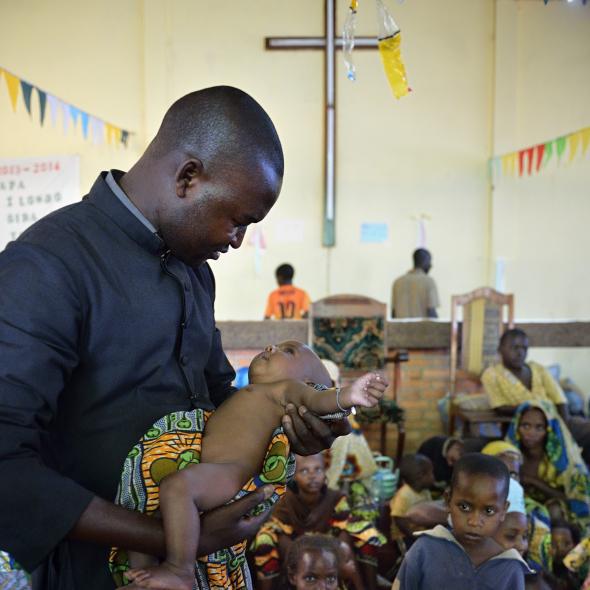An intensely moving AP story from Carnot, a city in the Central African Republic:
The Christian militiamen know hundreds of Muslims are hiding here on the grounds of the Catholic church … The priests here in Carnot have given away all their money to try and keep the anti-Balaka [Christian militia] at bay. There are no aid groups here apart from a clinic operated by Medecins Sans Frontieres, or Doctors Without Borders. The Catholic church, though, is pledging to continue its work here no matter what the personal risk. “For us they are not Muslims or Christians. They are people—people in danger,” says the Rev. Dieu-Seni Bikowo.
This is what happens in many parts of the world. Even in the midst of religious war, religious institutions provide the moral strength to contain the violence. Faith in transcendent values counters sectarian hatred.
The struggle goes on within each religion:
Already the fighters known as the anti-Balaka have brought 40 liters (10 gallons) of gasoline and threatened to burn the church to the ground. Even the Rev. Justin Nary, who takes in more Muslims by the day, knows he too is a marked man in the eyes of anti-Balaka. “Walking through town I’ve had guns pointed in my face four times,” he says. “They call my phone and say they’ll kill me once the peacekeepers are gone.”
The Rev. Bikowo rejects these fighters as representatives of his faith: “The anti-Balaka are not Christians.”
Within the protection of the church—and 30 Cameroonian peacekeepers—the Muslim refugees are free to pray:
On the grounds of the church, the men kneel on rice sacks pointed toward Mecca and whisper their prayers. [They] laugh when asked if they ever thought they would live at a church. However, they recognize the gravity of the situation that now faces them.” If it weren’t for the church and the peacekeepers, we’d all be dead,” says Mahmoud Laminou, who has been here for two weeks.
This is one reason why, despite the awful history of violence in God’s name, I don’t view religion as an enemy of progress. Religion is the form in which most people learn, express, and pursue their moral aspirations. It connects us to the idea of something higher and better in the world, in others, and in ourselves. You certainly don’t have to be religious to be a good person. But the social force that overcomes bad religion is, quite often, good religion.
